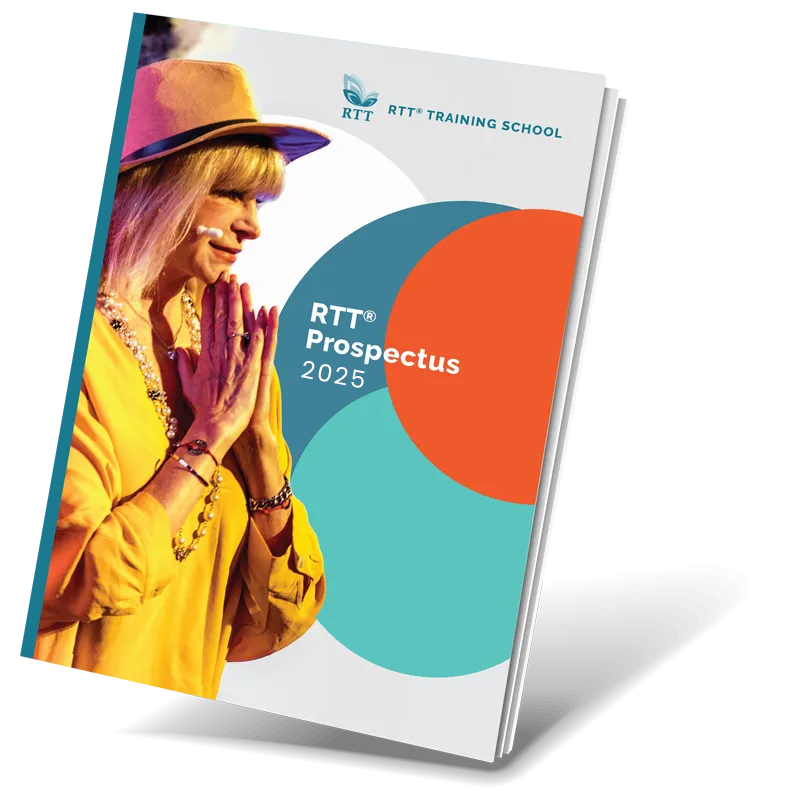Explore Hypnotherapy Training and Certification
What is hypnotism? The field of hypnotherapy is often subject to misunderstanding and stereotypes. For instance, some may recoil, believing they may never regain true control of themselves again. At the same time, others may find humor in the thought of a showman making unsuspecting crowd members run around on stage clucking like a chicken.
Both are inaccurate and misleading portrayals that often plague clinical hypnotherapy’s serious role in helping people lead happier and healthier lives.
We can define hypnotherapy much more accurately as a form of therapy that helps the client reach a heightened state of focus and relaxation. As a result, the client can focus on and communicate with their subconscious mind and are more responsive to suggestions.
Throughout a hypnotic session, the client remains in control and can reject suggestions from the therapist and bring themselves out of the hypnotic state.
Medical and mental health practitioners who train in hypnotherapy often use it to help their clients enter this relaxed state. For example, to assist with psychotherapy, reprogramming unhealthy habits, promoting stress or pain relief, and helping to speed up recovery from illness and injuries.
Career Overview
Becoming a hypnotherapist is not the sole reason someone may wish to train in hypnotherapy. Many existing clinical professionals also seek hypnotherapy training. Such professionals include dentists, doctors, nurses, psychotherapists, counselors, and social workers.
Some therapists and practitioners have private practices dedicated to hypnotherapy. Others use their training to complement their existing careers in holistic nursing, acupuncture, massage therapy, or psychotherapy.
During a hypnotherapy session, therapists may discuss their client’s medical history, if relevant, and the issue they’re looking to overcome. If the client is new to hypnotherapy, the therapist or practitioner will also walk them through how hypnosis works.
Gaining an understanding of how hypnotherapy works is often paramount to its success, as it helps the client feel relaxed and reassured before proceeding with the rest of the session.
In general, hypnotherapy sessions are around an hour, beginning with relaxation techniques. Once the client is relaxed and focused, the practitioner will start to help the client visualize scenes.
They will do this through guided imagery, sounds, smells, and tastes which helps make the sessions’ suggestions more effective in creating behavioral changes and relieving presenting issues.
Hypnotherapy Training and Education
Most hypnotherapy training schools include the study of:
- Theory and history of hypnosis
- Uses of hypnosis in a clinical setting
- Selecting the most effective techniques for individual clients
- How to work with specific issues
- Ethical concerns
Introducing Rapid Transformational Therapy® (RTT®)
RTT® is a pioneering hybrid therapy method founded by internationally award-winning therapist Marisa Peer. Marisa created RTT® as a result of her three decades of working with clients to help them achieve profound breakthroughs through her distinctive, results-driven, therapeutic approach.
While other hypnotherapy training programs focus on positive reinforcement, RTT® takes a different approach. Instead, RTT® combines the most effective principles from hypnotherapy, psychotherapy, NLP, CBT, neuroplasticity, and neuroscience.
Marisa explains that RTT® “doesn’t come from a single methodology; it comes from the unique layering of techniques and beliefs that I created and now teach.”
Those trained in RTT® are equipped with a distinctive set of tools and techniques to take a solutions-based approach to investigate the root cause of a client’s presenting challenges.
RTT® therapists draw on the tools and techniques pertinent to the clients’ goals to quickly uncover and eliminate this root cause, using RTT®’s success formula for potentially life-changing effects.
All RTT® therapists undergo extensive training, ongoing support, and supervision.
Average Duration of Study
The duration of study varies from school to school. However, you can expect most hypnotherapy programs to require a minimum of between 40 and 100 hours of training. Such training takes place in hypnotherapy workshops.
On top of this, you’ll usually need to undertake around 20 hours of supervised training and gain between two and five years of practical experience.
However, courses such as RTT® mean students can expect to become a therapist in as little as six months, depending on their chosen pathway.
Hypnotherapy Certifications
Most practitioners who have undertaken hypnotherapy training are licensed mental health, medical, or health care professionals holding a master’s or doctoral degree. This level of education qualifies them to pursue a hypnotherapy certification from a professional group.
Such groups include the American Society of Clinical Hypnosis (ACSH), the American Association of Professional Hypnotherapists (AAPH), and the Society for Clinical and Experimental Hypnosis (SCEH).
Practitioners may also gain specialty certifications through the American Board of Medical Hypnosis (ABMH), the American Board of Hypnosis in Dentistry (ABHD), and the American Hypnosis Board for Clinical Social Work (AHBCSW).
When researching hypnotherapy training schools, it is important to consider what accreditations they hold.
For instance, RTT® accreditation is different from other training programs as it utilizes a hands-on, practical approach taught at the highest educational standard.
Additionally, by choosing to train in RTT®, you will undergo continuous practice sessions with guided support and regular mastermind sessions to better understand the topics explored.
RTT®️ is accredited by: the General Hypnotherapy Register (GHR), International Association of Counsellors and Therapists (IACT), International Institute for Complementary Therapists (IICT), International Hypnosis Federation (IHF), Accredited Counsellors, Coaches, Psychotherapists and Hypnotherapists (ACCPH) Australian Society of Clinical Hypnotherapists (ASCH) – RTT® Live In-Person only, New Zealand Association of Professional Hypnotherapists (NZAPH), International Coaches Register (ICR), International Hypnosis Association (IHA), Dutch Association of Hypnotherapists (NBVH).
If you would like further advice on choosing the right hypnotherapy certification, visit the complete guide.
Career Prospects
Awareness of alternative treatments and holistic therapies continues to increase. Therefore, we predict the demand for hypnotherapy training and services will correlate positively with this social trend.
Hypnotherapy remains widely used both on its own and alongside other specializations to help resolve any issues and concerns. These commonly include poor sleep, anxiety, phobias, and weight management.
In particular, individuals searching for non-invasive, natural, drug-free methods of breaking habits such as smoking, losing weight, and managing stress may find hypnotherapy an increasingly attractive option.
Hypnotherapy has the potential to effectively empower clients to overcome whatever issue may be affecting their lives.
Salary of a Hypnotherapist
Salaries for graduates of hypnotherapy schools can vary depending on many factors, including the occupation they choose to enter. However, salary and job growth information are readily available for the most common occupations of trained hypnotherapists.
According to PayScale, the average base hourly rate for hypnotherapists in the U.S. is $101.50.
However, PayScale record pay can vary from $74 to $156 an hour, with total pay varying from $40k to $316k.

Source: PayScale (last updated Jan 29, 2021).
There are many variables to consider when setting your salary expectations. Firstly, if you are self-employed, you will be free to set your fees.
For instance, RTT® Therapists typically charge around $400 for a 90-minute RTT® session.
The reasoning behind this is that, unlike traditional therapy methods, RTT® stands out as a highly successful therapy method known for its potential to identify and eliminate the root cause of a client’s issue in as little as one to three sessions.
Making it a unique and highly effective method for both the client and therapist.
Other determining factors include your level of education, specialization, location, and years of experience. Salaries will also depend on whether hypnotherapy is their sole occupation or is part of their offering within the medical or holistic field.
Furthermore, salaries will vary depending on having a practice, being self-employed, and working part-time.
Is a Career in Hypnotherapy Right for You?
Suppose you are interested in holistic health care. In that case, hypnotherapy training can greatly enhance your career path. Whether you focus your practice on providing relief from presenting issues or specialize in counseling applications such as overcoming addictions and eating disorders.
The same is true for those in massage therapy and acupuncture looking to broaden their prospects. Such specialists can significantly increase their offering through hypnotherapy training by helping clients relax and support their recovery.
If you are looking for a career change and possess the desired traits of a therapist, you may also wish to explore schools such as RTT®. The RTT® school has trained tens of thousands of professionals, from school teachers to marketing executives, who are looking for ways to diversify their skill sets and help improve the lives of others.
Ultimately, training in hypnotherapy allows therapists and practitioners to help their clients reach a deep, focused state to harness their subconscious minds for powerful possibilities and potentially extraordinary transformations. If you are interested in a hypnotherapy career or wish to learn more about training, click here to download the RTT® brochure today.


